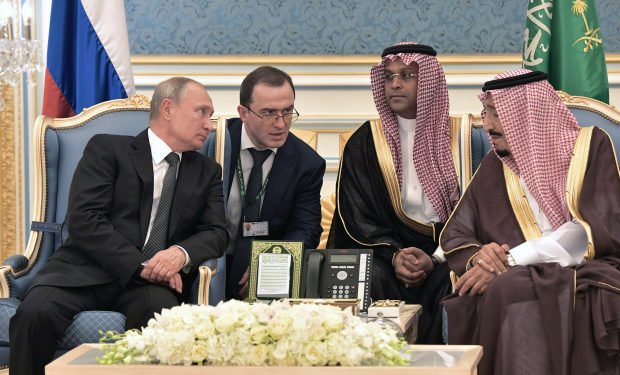As the historic crude oil production cuts reached on April 12, 2020 between OPEC and non-OPEC producers (OPEC+), starts its second month, and the end of phase 1 cuts, frantic efforts are being made by OPEC+ to extend the phase 1 cuts.
According to news report by Reuters, OPEC leader Saudi Arabia and non-OPEC Russia have agreed a preliminary deal to extend the existing record oil output cuts by one month.
The deal reached in April called for an overall reduction in crude oil production by 9.7 mb/d, starting on 1 May 2020, for an initial period of two months that concludes on 30 June 2020.
For the subsequent period of 6 months, from 1 July 2020 to 31 December 2020, the total adjustment agreed will be 7.7 mb/d. It will be followed by a 5.8 mb/d adjustment for a period of 16 months, from 1 January 2021 to 30 April 2022. Click here for the record production cut deal.
Read also; The Misplaced Priority in Nigeria’s 2020 Revised Budget
A meeting on 10 June 2020 via videoconference, to determine further actions, as needed to balance the market appears to be in jeopardy unless countries that do not meet the obligations of cutting production make firm promises to implement their supply curbs.
A survey by Reuters showed that OPEC delivered 4.48 mb/d of the pledged reduction representing 74% compliance. OPEC’s share of the cut is being made by 10 members excluding Libya, Iran, and Venezuela, from their October 2018 output in most cases, and this equaled 6.084 mb/d cut.
Some OPEC countries failed to meet their own obligations in the deal, and have shown weak compliance with its output reduction targets in May. Some of these countries are Nigeria, Iraq and Kazakhstan.
The leaders of OPEC+ have given fellow members an ultimatum: stop cheating on oil-output quotas or the strict measures that have revived oil prices may start to be phased out.
Read more; Oil Prices Maintain Rally as OPEC+ Plans to Meet
Bob McNally, founder of consultant Rapidan Energy Group and a former White House official said, “Riyadh and Moscow are not kidding about implementing some form of compliance-improvement mechanism, without it, they walk.”
Iraq and Nigeria, who have repeatedly flouted OPEC commitments during the past three years, made less than half of their agreed cutbacks last month, a Bloomberg survey showed on Monday. The two countries are being asked to pump less than their quota in the coming months to make up for producing too much in May, according to people conversant with events at OPEC.
According to the production cut deal, Nigeria is required to produce 1.412 mb/d till June 30, 2020, and increase production to 1.495 mb/d between Jul 1 – Dec 2020. From January 2021 to the end of April 2022, the country will increase production to 1.579 mb/d.
The Minister of State for Petroleum Timipre Sylva in an apparent response to this development, released a statement on Twitter handle @HETimipreSylva on Tuesday 2nd June 2020, stating that the country’s production in May was 1.613 mb/d down from the 1.829 mb/d base production level, a compliance level of 52%.
Read further; U.S Sends 2 Mn doses of Hydroxychloroquine to Brazil; 416 new cases confirmed in Nigeria
He went further to say that current daily production is well below the period commitment level of 1.412 mb/d, and will translate to full compliance by the end of June 2020.
There is every likelihood that the deal will be extended for one month, or even two, as the non-complying countries have a large incentive to not derail any agreement on the extension.
The price of crude has recovered significant since the historic low prices seen in April 2020; the benchmark Brent is currently trading at $39.55, while Nigeria’s Bonny Light is last traded at $37.89.
Written by;
Nnamdi M.






















































